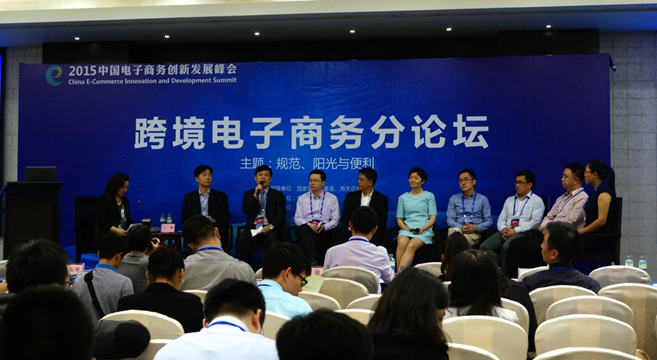

At a forum on cross-border e-commerce in the city of Guiyang, capital of Guizhou province, on May 8, gathering government officials?as well as?business and industrial leaders to discuss how e-commerce companies are replacing individual purchasing agents and breaking down barriers between nations in borderless trade.
 |
|
Cross-border e-commerce forum in Guiyang, Guizhou province on May 8.[Photo/chinadaily.com.cn] |
In the words of Wang Hua, the Party secretary at China Customs Press,"China's cross-border e-commerce has stepped into the web 2.0 era."
This was echoed by Xu Hao, Guiyang's deputy mayor, who explained,"E-commerce is a powerful emerging force in services and trade in Guiyang and cross-border e-commerce can promote economic integration and globalization of trade and has formed open, multidimensional cooperation."
Xu went on to say,"Guiyang is an inland, under-developed city, but thanks to e-commerce, it has found a way to 'going global'," then added that Guiyang will set up a data center to gather all the data from government, enterprises and the public and it will be open for exchanges and trade.
At the same time, Chen Zhenchong, head of the General Customs Administration's Science and Technology Division, noted that cross-border e-commerce still faces problems, such as ambiguous policies on retail sales and imports and exports and restraints on cross-border payments and custom clearance.
Chen then added, "The State Administration of Taxation is improving its supervision of cross-border e-commerce logistics and promoting information sharing, while the General Customs Administration is learning from Russia and the Netherlands about how to optimize e-commerce customs clearances."